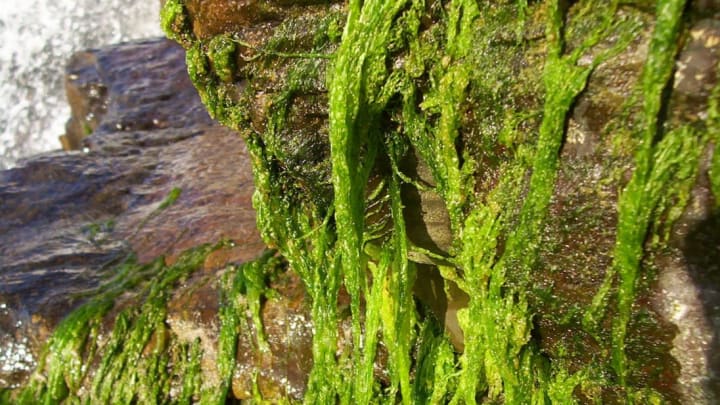For the past several decades, plastic—often made from carbon dioxide-producing fossil fuels—has dominated our stores, homes, and landfills. Two Dutch designers propose a green alternative that can be found growing in your local pond. As Dezeen reports, Eric Klarenbeek and Maartje Dros believe their algae-derived biopolymer could one day replace petroleum-based plastic all together.
The pair developed the material after studying algae at various institutions in the Netherlands for three years. Following that period, they founded an open research and algae production lab at the Luma Foundation in Arles, France.
Once they cultivate the living algae, the designers then dry it and process it to make the moldable material. The polymer can be fed into special 3D printers that use it to churn out items like bowls and vases. Klarenbeek and Dros envision a future where communities have access to a network of these biopolymer 3D printers, which they call “the 3D Bakery.” Instead of purchasing goods that have been shipped across the world, consumers could stop into a store and “bake” their purchases from the algae-stocked 3D printer on site. They claim that dishware, trash cans, and shampoo bottles can be made this way.
The algae lab does more than eliminate the harmful CO2 byproducts from plastic production—it also purifies the air of existing CO2. Algae consumes the gas from the water and atmosphere as it grows while expelling clean oxygen. The result is a process that goes one step beyond zero emissions.
Klarenbeek and Dros aren’t the first people to think to replace plastic with organic algae. Designer Ari Jónsson successfully used the plant to make water bottles that biodegrade over time. The products coming out of the algae lab, on the other hand, are made to last longer. The design duo plans to start supplying their biopolymer to restaurants and catering companies within the city of Arles. To see how they harvest the raw algae used to make their products, check out the video below.
[h/t Dezeen]
